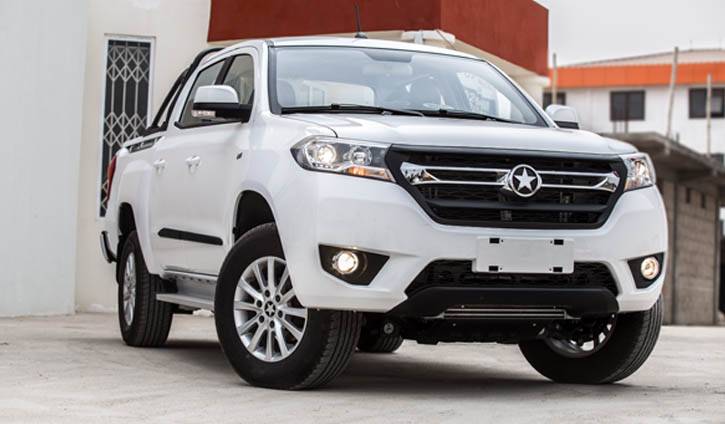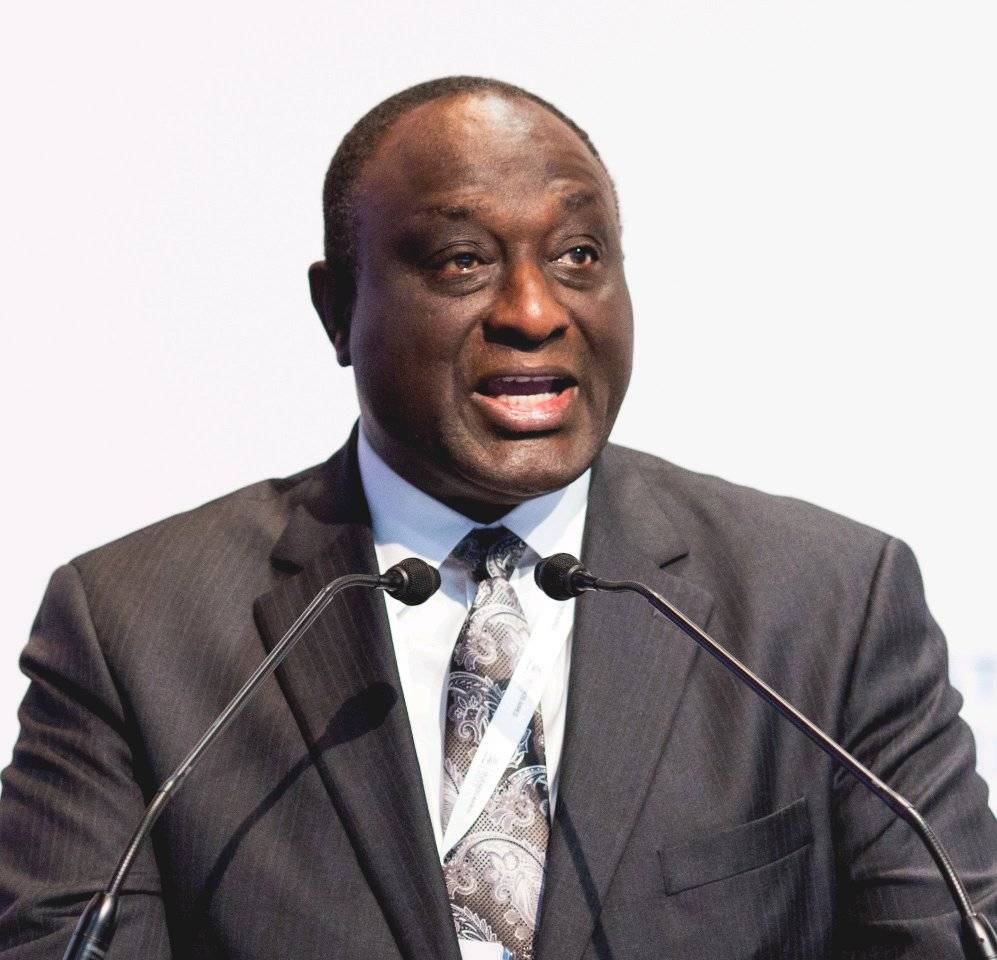Ghana’s political history has operated a trajectory of peaceful coexistence and cohesiveness. Within the religious space it’s difficult to single out how Christianity or Islam, the two most dominant religions in the country has influenced outcome of elections. Indeed, we may have a bit of our own ethnic slant in the political equation in Ashanti and the Volta Regions.
Nonetheless, that comes nowhere near a country like Nigeria where religion and ethnicity are considered crucial determinant factors in elections in the West African country. Even in the case of the NPP’s dominance in Ashanti and NDC’s in Volta Regions, the phenomenon is gradually fading off now, as compared to the early days of the 4th Republic.
Today, for the first time in the current dispensation, the NPP has a sitting MP in the person of Hon. Peter Amewu, the MP for Hohoe in the Volta Region. The NDC have been showing some strong presence and consistency in its average win of some three constituencies in the Ashanti Region over the years. Not only that. The major opposition party have also been returning some strong numbers in Ashanti Region in our immediate past elections.
That explains why many historians and observers of Ghana’s political history make a mockery of the so-called pollster, Ben Ephson’s projection that Vice President Bawumia’s presidential candidacy is being enhanced by his Northern ethnic extraction and religious considerations. On the latter preposition, “pollster” Ephson's deduction is that because Dr Bawumia had a warm reception in churches and mosques he visited, it's an indication that he is favoured by the two religious groups.
Indeed, based on history, no serious presidential candidate or aspirant will solely rely on the indices provided by Ben Ephson and hope to make any serious impact on any given Ghanaian election. There are by far, other more pressing considerations, largely the economy of communities or individuals. It makes one wonder the basis for such categorical projection by the “pollster”, if not for the psychological game he and his cohorts want to play on the minds of some unsuspecting and vulnerable NPP delegates.
Aside the obvious mind games, Ben Ephson’s ethnic and religious prognosis are hinged on the eye pleasing deductions he made from the setting where the Vice President mingled with the two religious faiths. Such ordinary distant spectatoring assumptions do not have basis in history or scientific research. The logical question then becomes “which NPP presidential aspirant received hostile reception when they visited any of the churches and mosques in the country?” Certainly not Alan!
Although the relevance of such preposition is almost a façade within our political course, as history has shown, Ben Ephson insists majority of the Muslim community will back a Bawumia candidature because they consider the Vice President as one of their own. However, the political history of the Northern parts of Ghana do not necessarily, favour people with a Northern extraction. The Vice President is from Mamprusi in the North East Region. The Mamprusis and Kusasis are key stakeholders when it comes to political choices of their area.
The two ethnic groups operate on separate political axis because they don’t seek a common object or goal in their setting, their way of life and the pursuit of any form of politics. Their differences have resulted in the rigmarole of bouts for years. The immediate cause of the disturbances between the two groups may be over the enskinment of an Overlord of Bawku. There are however, other under currents. Most Kusasis are not happy about the manner successive governments have handled the Kusasi-Mamprusi war.
Some Mamprusis are even blaming the Vice President for his inability to use his position as the number-two man of the land to bring finality to the Mamprusi-Kusasi war. Then, the historical betrayal of Bawumia’s father of the Northern People’s Party faction of the United Party, the parent political tradition of the New Patriotic Party (NPP). Many Mamprusis have still not forgiven Alhaji Mumuni Bawumia for crossing over to the Convention People’s Party (CPP) in 1964.
The three recognized leaders of the Northern People’s Party were S.D. Dombo, Abayefa Karbo and Alhaji Mumuni Bawumia. Mumuni Bawumia’s cross carpet to the CPP has been a major landmark of a painful reference point anytime anyone from the Bawumia family seeks national office. Indeed, the Kusasi-Mamprusi fight and the politico-historical antecedent of the Mamprusis, this author discovered, seem to be playing favourably into the hands of Alan John Kwadwo Kyerematen, the former Trade Minister.
Perhaps the biggest ethnic group with a major stake in Northern politics are the Dagombas. They have shown some degree of discernment, decency and consistency in their political choices over the years. Their decisions are not necessarily informed by parochial affiliation to any particular political party. That explains why former President Kufuor, an Akan, made substantial inroads in the Dagaomba area during the 2000 elections. Since then, the NPP have shown strong presence in that part of the Northern Region. So delegates in Dagbon, are not likely to be influenced by the Mamprusi proxy, but by competence and the longevity of an aspirant to the cause of the NPP tradition.
It’s almost an unwritten convention that in event Dagombas do not get the NPP presidential nominee, the running mate or the vice presidency slot is automatically theirs. The history of the NPP tradition dating back 1979 is replete with such election permutations. The Popular Front Party (PFP), a party with same political leaning and tradition as the NPP, selected Alhaji Yakubu Tali, the Tolon Na, a Dagbon native or a Dagomba, as running mate of Victor Owusu, the PFP’s presidential candidate in the 1979 Third Republican elections.
Prof. Albert Adu Boahene, the NPP presidential candidate for the 1992 elections, selected Diplomat, Rowland Issifu Alhassan, a former MP for Tolon Kumbugu in 1969 and 1979 as his running mate. Lawyer Alhassan is also of a Dagomba extraction. Then came Alhaji Aliu Mahama, another Dagaomba, who run on the ticket of John Agyekum Kufuor in the 2000 elections and eventually became the Vice President of Ghana. So with a Bawumia candidature, wherein lies “the birth right” of the Dagombas? They may be asking.
This author is not too sure there is any promise of a Dagomba running mate slot, but judging by the political trajectory of the NPP and its tradition, the possibility of a Dagomba candidate partnering a potential Alan candidature, cannot not be ruled out. Where will their fate be with a Bawumia nominee? To many political watchers, it was not surprising at all that the Overlord of Dagbon, the Ya Na symbolically enskinned Alan and that was a clear case of endorsing the next gentle giant, as the presidential nominee of the NPP in the 2024 elections..
The only aberration to the “Dogomba right” to the NPP presidential ticket occurred in 2008 when then candidate Akufo Addo chose Dr. Mahmudu Bawumia, a Mamprusi as his running mate. Yet again, one other argument from the Bawumia stable that is hitting a snag in the Northern territories is the erroneous impression being created that dominant Muslims from that part of the country are likely to vote for one of their own—Bawumia. Although, that has no scientific proof, the reality however, is that Christians especially Catholics, dominate the Upper East, Upper West and the Gonja areas of the Northern territories.
So granted some parts of the Northern Region have Muslim groupings, they cannot compare with the sheer size of Christians all over the Northern Ghana areas. Then the Zongo misconception. Some of Dr. Bawumia adherents argue that the Zongo setting in Ghana is an almost wiped out slate for the Bawumia call. Perhaps, it’s a suggestion based on a distant observation without recourse to the content and character of the people domiciling in the Zongo communities. Many Zongo residents are not necessarily Muslims although majority of them may be speaking Hausa, the language which is often misconstrued by many to be a major medium of transmitting Islamic teaching.
Therefore, the seeming domination of the Hausa language at the Zongos does not offer adequate gauge of how Islamic, a Zongo setting is. There are people of many religious persuasions converging at the Zongos; and they are from all other parts of the country and even foreign lands. And not necessarily, only extractions from Ghana’s Northern Regions are converted indigenes of the Zongos. So anyone who may conclude that the Zongos are earmarked for Dr. Bawumia because of their origins and their religious inclinations may be living a day dreaming.




No comments yet
Be the first to share your thoughts!